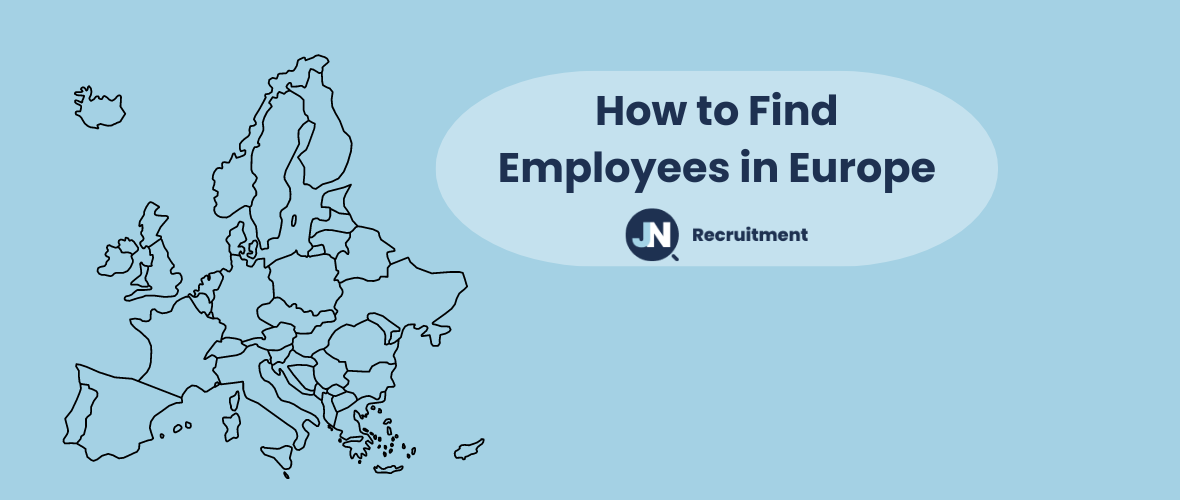Finding good employees is particularly a challenge in the European market, where diverse cultures, languages, and regulatory environments add layers of complexity to the recruitment process. Drawing on data and insights specific to Europe, we delve into why securing top talent can be especially tough for businesses operating within this region and how a strategic approach can make all the difference.
The European Skills Gap
The skills gap is a significant issue across Europe, with a notable mismatch between the skills available in the labor market and those demanded by employers. According to the European Centre for the Development of Vocational Training (Cedefop), about 40% of employers in the EU report difficulty in finding employees with the right skills, particularly in sectors such as technology, healthcare, and engineering. This gap is caused by rapid technological advancements and the digital transformation that many industries are undergoing.

Looking for the best employees all across Europe? We’ll find them with guarantee!
Cultural Diversity and Language Barriers
Europe’s rich cultural diversity, while a strength, also presents challenges in recruitment. The continent’s multilingual nature means that language barriers can complicate the hiring process, especially for roles requiring specific language skills or for companies operating in multiple European countries. At JN Recruitment, we have multilingual employees who can help you overcome this barrier. Additionally, understanding and integrating into different corporate cultures and work ethics across Europe can be a daunting task for both employers and candidates.
Regulatory Complexity
The European labor market is characterized by its regulatory complexity, with each country having its own set of labor laws and employment regulations. This diversity can create challenges for companies looking to hire across borders, as they must navigate varying contract types, working hours, termination laws, and data protection regulations. The European Union (EU) strives for harmonization, but significant differences still exist between member states.
Demographic Challenges
Europe faces unique demographic challenges that impact the availability of talent. Many European countries have aging populations, leading to a shrinking workforce and increased competition for young, skilled workers. This demographic shift puts pressure on employers to not only attract but also retain talent by offering competitive benefits, flexible working conditions, and opportunities for professional development.
How We Navigate the European Market
In response to these challenges, JN Recruitment employs innovative targeted strategies to help our clients succeed in the European talent market:
- Localized Recruitment Strategies: We develop tailored recruitment strategies that consider the specific cultural, linguistic, and regulatory landscape of each European country.
- Social Recruitment – we recruit candidates by using social platforms as talent databases.
- Focus on Employer Branding: We help our clients enhance their employer branding to attract talent by emphasizing their company culture, values, and the benefits of working with them, tailored to the expectations of the European workforce.
Conclusion
The European market presents unique challenges for businesses seeking to hire good employees, from the skills gap and regulatory complexity to cultural diversity and demographic shifts. However, with the right approach and support, these challenges can be navigated successfully.
JN Recruitment is dedicated to help you understand the intricacies of the European labour market and leveraging our expertise to connect our clients with the talent they need to thrive.








